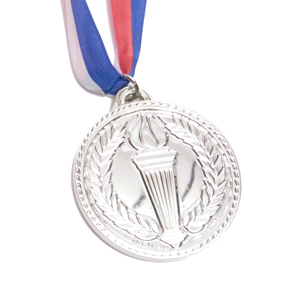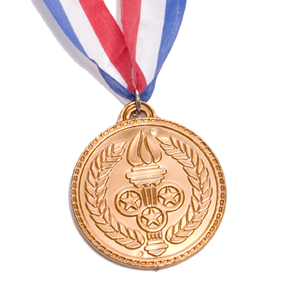The fighting along the Abucay Line that second week of January was fierce, brutal, and critical to the efforts to hold. Captain Arthur Wermuth's heroic actions in destroying the bridge at Kalaguiman only temporarily delayed the Japanese advance on the Allied main line of resistance. On the night and following day of January 11-12, not far distant from Kalaguiman, Second Lieutenant Arthur Sandy Nininger found himself confronted by hordes of advancing enemy soldiers. Though assigned to Company A, 57th Infantry, during the brief respite from combat Wermuth's action had provided, Nininger had attached himself to Company K in efforts to recapture positions along the line, taken when the Japanese infiltrated a cane field. and critical to the efforts to hold. Captain Arthur Wermuth's heroic actions in destroying the bridge at Kalaguiman only temporarily delayed the Japanese advance on the Allied main line of resistance. On the night and following day of January 11-12, not far distant from Kalaguiman, Second Lieutenant Arthur Sandy Nininger found himself confronted by hordes of advancing enemy soldiers. Though assigned to Company A, 57th Infantry, during the brief respite from combat Wermuth's action had provided, Nininger had attached himself to Company K in efforts to recapture positions along the line, taken when the Japanese infiltrated a cane field. On the night of January 11, following an artillery barrage, hoards of Japanese had attacked the line in a Banzai charge. Waves of screaming enemy soldiers streamed into the lines in the face of intense fire, men of the leading wave throwing their bodies over barbed wire barricades to create "bridges" over which the following waves could pass. Narcisco Salbadin manned a water-cooled machine gun in efforts to beat back the enemy. He killed dozens of attackers but each time one fell, it seemed two more rushed forward to replace him. When his machine gun jammed, Salbadin began firing with his .45 pistol, killing five. His thumb was severed when one Japanese soldier attacked him with a bayonet, but despite the loss he maintained his grip, wrested the rifle from the attacker, and then reversed it to ram the bayonet into the enemy soldier's chest. As the Banzai charge at last began to falter, the Scouts turned offensive to throw back the enemy and regained ground now claimed by the Japanese. Lieutenant Nininger's subsequent Medal of Honor citation reveals his own uncommon heroism: "In the hand-to-hand fighting which followed, Second Lieutenant Nininger repeatedly forced his way to and into the hostile position. Though exposed to heavy enemy fire, he continued to attack with rifle and hand grenades and succeeded in destroying several enemy groups in foxholes, and enemy snipers. Although wounded three times, he continued his attacks until he was killed after pushing alone far within the enemy position." In that action Second Lieutenant Nininger became the first member of the U.S. Army to earn the Medal of Honor in World War II. Ultimately, the Japanese advance had been temporarily halted, but the charge had left hundreds of Japanese snipers alive, and hidden in trees and trenches all along the Abucay line. The task of finding, and destroying them was going to take days of deadly fighting. For Arthur Wermuth, the continuing attacks mean no time to recover from his own wounds. Five U.S. Marines, displaced from their own unit during the battle for Bataan, arrived at the 57th Infantry Headquarters. Sergeant Bill Eckstein described his men as on "detached service with the U.S. Army to teach them how to fight." Eckstein and his comrades were quickly welcomed by Wermuth, who wasted little time putting them into action. On January 15, Captain Wermuth deployed what was left of his company along the cane field that bordered the left side of the main road between Kalaguiman and Abucay. He then dispatched two patrols to begin burning the field, leading one patrol himself and placing the other patrol under the charge of Marine Sergeant Eckstein. Eckstein's patrol reached the center of the field first, an elevated clearing, and the displaced Marine raised up to peer beyond. Suddenly five rounds slammed into his body, severely wounding him. Marine privates Bill Brown and Al Sheldon crawled forward to their sergeant, amid a continuing hail of enemy fire. "Get out of here with the Sarge," Brown shouted, even as scores of Japanese raced, firing as they ran, at his exposed position in the clearing. While Sheldon dragged his sergeant to safety, Brown knelt and coolly snapped off deadly single-shots for five minutes, dropping Jap after Jap. Then his luck began to run out. More than 100 Japanese raced to the edge of the clearing, setting up a machine-gun to rake Brown's position. Repeatedly hit by enemy fire, Brown maintained his position, holding an entire Japanese company at bay until his sergeant had been removed to safety. bay until his sergeant had been removed to safety. For his heroic actions to save the life o f his sergeant, at the cost of his own life, Private First Class Robert Joseph Brown became the FIRST of 31 U.S. Marines to be awarded the Army's Distinguished Service Cross in World War II. f his sergeant, at the cost of his own life, Private First Class Robert Joseph Brown became the FIRST of 31 U.S. Marines to be awarded the Army's Distinguished Service Cross in World War II. For Captain Arthur Wermuth, watching that young Marine's valiant stand was at once both inspiring and heart-rending. Even when Private Brown was dead, the Japanese continued to vent their hatred by raking his body with machine-gun fire. Yelling above the fray, Wermuth shouted, "Jock, burn the field," and then to his men, "Shoot every little son-of-a-bitch who comes running out." By sunset, 207 dead Japanese lay in and around the cane field. ...Part 3 next week... |















































